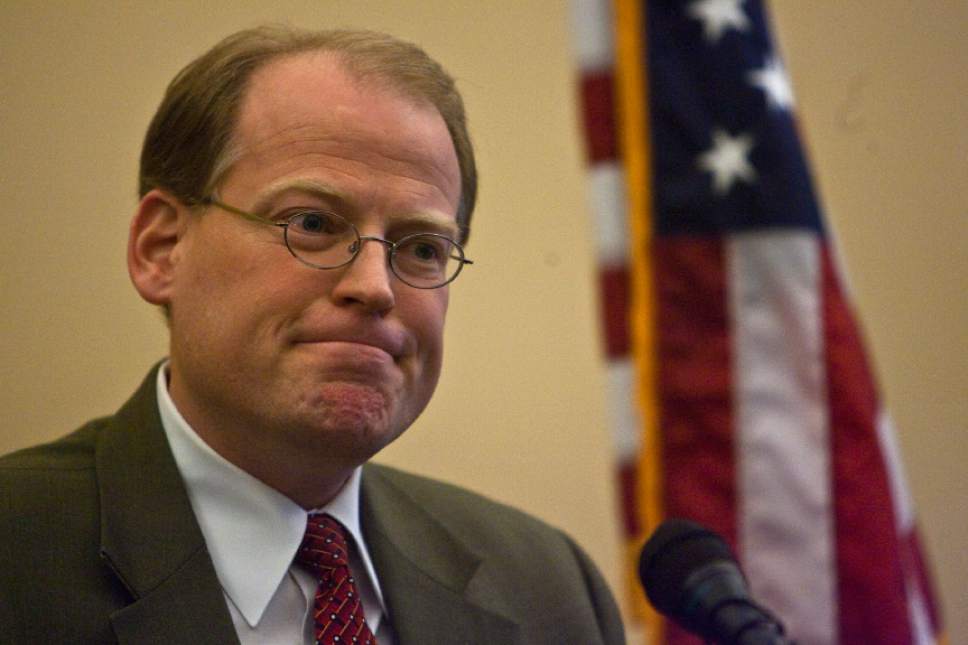This is an archived article that was published on sltrib.com in 2016, and information in the article may be outdated. It is provided only for personal research purposes and may not be reprinted.
Accepting that our judges can set aside all personal prejudice and rule without bias has always required a little faith. We're talking human beings here. But trusting the judiciary should not depend on a total suspension of disbelief.
That is why it was questionable, at best, for Gov. Gary Herbert to nominate to a state judgeship an outgoing legislator whose past proposals suggested an ongoing bias against marriage equality and the rights of same-sex couples.
Kraig Powell, a Republican House member from Heber City who did not seek re-election this year, has been nominated to a seat on the Utah 4th District Court, which has jurisdiction over Juab, Millard, Utah and Wasatch counties.
That choice has understandably set off alarm bells among supporters of LGBT rights. Enough so that the nomination should be respectfully rejected by the Senate.
In the last legislative session, Powell was promoting bills to create a separate legal category for same-sex unions, which he would have called "pairage," and to favor heterosexual couples over homosexual ones when approving adoptions of children in state custody.
Those bills failed. But, in proposing them, Powell stuck to discredited arguments that saw same-sex couples as somehow inferior to opposite-sex pairs, especially when it comes to raising children.
Powell then contended that the federal ruling requiring the acceptance of same-sex marriage did not extend to parental relationships and other things inevitably attached to marriage. That idea can only be based on a belief that some families are less real than others — exactly the attitude that the ruling by Justice Anthony Kennedy sought to remove from American law once and for all.
Appearing before a legislative committee Monday, Powell clearly realized that his past statements had caused people pain and anger, that he regretted that and, most important, that he saw the role as a judge as very different from that of a lawmaker and that, as a judge, he would have no problem applying the law as it now stands.
Maybe Powell's attitude toward gay marriage — then or now — doesn't matter, as the question has been settled. President-elect Donald Trump said as much Sunday.
But Trump has also promised to nominate to the Supreme Court justices in the mold of the late Antonin Scalia, one of the court's most outspoken opponents of same-sex equality. That opening is the reason why it matters what beliefs judges carry, or are thought to carry, onto the bench.
Utah Attorney General Sean Reyes is among those backing a lawsuit by the state of Mississippi that seeks to allow its county officials to refuse to issue marriage licenses for same-sex couples if they have a religious objection to doing so, another idea that would make gay people second-class citizens. It should, and likely will, fail.
But as long as there is even a suggestion that the battle for marriage equality is still going on, Utah must make sure it seats no judges who would be, or even seen to be, clinging to discriminatory laws and practices of the past.



